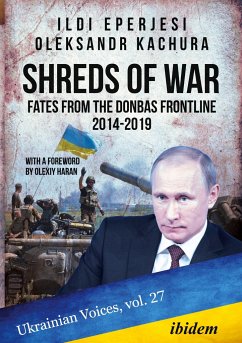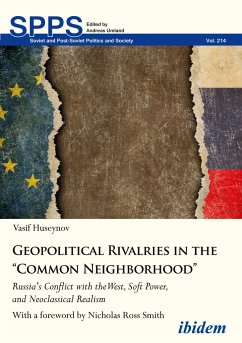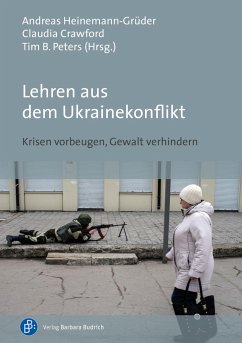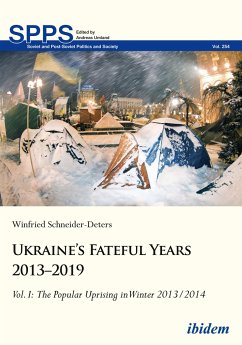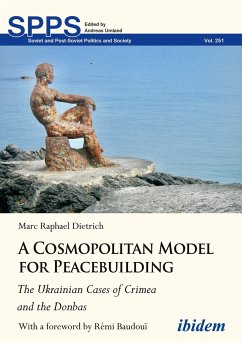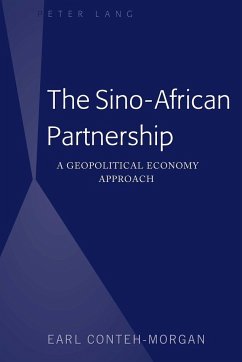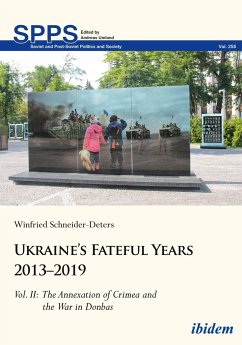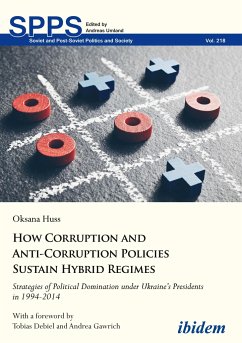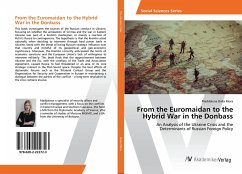
From the Euromaidan to the Hybrid War in the Donbass
An Analysis of the Ukraine Crisis and the Determinants of Russian Foreign Policy
Versandkostenfrei!
Versandfertig in 6-10 Tagen
27,99 €
inkl. MwSt.

PAYBACK Punkte
14 °P sammeln!
This book investigates the sources of the Russian conduct in Ukraine, focusing on whether the annexation of Crimea and the war in Eastern Ukraine was part of a Kremlin masterplan, or merely a reaction of Putin's Russia to contingencies. The hypothesis is that the Kremlin acted rationally when deciding to intervene through hard power tools in Ukraine, faced with the threat of losing Russian strategic influence over that country and mindful of its geopolitical and geo-economic significance. Moreover, the Kremlin correctly anticipated the limits of economic sanctions and the European Union's lack...
This book investigates the sources of the Russian conduct in Ukraine, focusing on whether the annexation of Crimea and the war in Eastern Ukraine was part of a Kremlin masterplan, or merely a reaction of Putin's Russia to contingencies. The hypothesis is that the Kremlin acted rationally when deciding to intervene through hard power tools in Ukraine, faced with the threat of losing Russian strategic influence over that country and mindful of its geopolitical and geo-economic significance. Moreover, the Kremlin correctly anticipated the limits of economic sanctions and the European Union's lack of willingness to intervene militarily. This book finds that the rapprochement between Ukraine and the EU, with the corollary of the Trade and Association Agreement, caused Russia to feel threatened in an area of its core strategic interest in the Post-Soviet space. Despite the best efforts of diplomatic forums such as the Trilateral Contact Group and the Organization for Security and Cooperation in Europe in maintaining a dialogue between the parties of the conflict - a long-term resolution to the crisis remains elusive.





